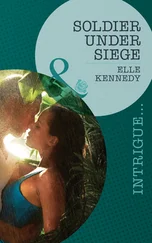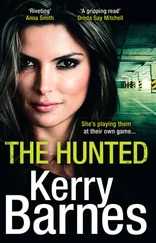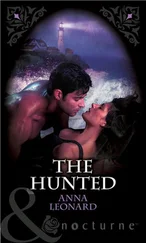“Apparently he liked to cut things up, animals, birds, skin them, leave them around town. Guy quoted here, ran a motel, said he came to work one day, there were four squirrels and a coyote, decapitated and gutted in front of rooms number one through five.”
“And they pegged it to Waters?”
“Not exactly, at least the sheriff here is quoted as saying, but he went out to have a talk with Terry and the old man. Things piped down for a while, then there was another incident with deer carcasses, this time at the res headquarters, and that got another visit, no fooling this time. The dad, that’s Russell, he said he would take care of it. The last time anyone quoted saw Terry.”
“How long is that?”
“Seven or eight years.”
“Jesus.”
“We quote, and the Times does as well, friends of Dad, if you can call them friends, saying they’d seen Terry when they had stopped by way back when, that Dad kept him either in a locked room or on a rope in the backyard.”
“A rope ? Didn’t that like, sort of set off social welfare or something?”
“It’s on the res, so it’s Indian Country, and the res people say, basically, what do you want us to do? Where would we send him that’s better?”
Sully ate a tater tot. “You put it like that.”
“Dad was an ornery cuss himself, apparently. Dead for days before anybody found him.”
“Was he gutted?’
“Your apparent garden variety heart attack, coroner says. Sixty-three. Found on the kitchen floor, facedown, by a neighbor who’d seen the lights on three, four nights in a row.”
“And our boy Terry, long gone.”
“Like the breeze.”
“And, what, this was last year?”
“Last October, so what’s that, ten months? Yes. Ten months.”
“Terry then totally off the grid until he shows up at the door of the Capitol.”
“The guys and girls in Investigative say there’s nothing in the system on Waters. No driver’s license record, no employment history, nothing.”
“A ghost, a phantom, the mist, the fog,” Sully said. “He worked with a gun at the Capitol, though, not a knife.”
“You’re forgetting the ice picks, champ. He got more refined.”
***
Sully checked into the Corral Hotel, hard off the interstate, a two-story brick thing. His was a small room on the second floor, facing west, four walls of depression and low-end America that looked just right for hanging yourself from the shower rail. The afternoon and next morning he made the due diligence stops-the res administration, the sheriff’s office, the feed store, the school. Twenty-four hours after he landed, he’d gotten the same pablum as everyone else. He’d tried even the casino the first night, the lowest rung of reporting, running a tab, trying to chat up the bartender, the waitress, the guy sitting down from him.
Nobody told him shit.
He didn’t mind. He was the guy from out of town. No matter where you went on the planet, nobody who lived in little towns that had just risen to notoriety wanted to talk to the dipshits from out of town. Back home in Tula, if reporters from New York and D.C. and Chicago had shown up after his mother was murdered? Half the town would have beaten them senseless while the other half fetched torches for the bonfire.
That night he lay awake in the room, the clock ticking past one, then two, the vast, open landscape and the endless windswept vistas outside. It had broken him down enough earlier in the day that he had gotten a fifth of Maker’s at the liquor store in town. This was, technically, a violation of the promise he’d made to Alexis, during his phone call back to her and Josh, that he would not drink on the trip. But good God, a man could have one, well, two, and possibly five if anyone had to count, when stuck in a bullshit hotel like this, the night long, the diversions nonexistent, the prairie outside infinite.
So late in the second day, another night and the other half of the bottle looming in front of him, he turned the car out of town, heading down Route 99, toward Prague, headed out to the Waters’ old homestead.
The land here was wide open, trees not even close on the road, the pastures undulating to the horizon. Prefabricated tin warehouses, wooden country stores. There weren’t many turnoffs. Still, he blew right by his turn. After stopping at a concrete-block country store three miles down the road, asking directions, he came back and turned onto an unmarked gravel road that the clerk had assured him was actually Spark Road, the one he was looking for. He turned left, heading west, and reset the odometer, red dust billowing up behind him.
Once you turn west on Spark, the clerk had told him, it was six or seven miles to his next turn, which would be a left, not long after he’d passed a little wooden church. From there, that gravel road would take him another few miles, across a creek, and the first right after that would be the Waters’ driveway. It was in a clump of trees, lined with scrub, and there was no marker. You’ll know it when you get there, she said, and Sully was country enough to understand that those were the best directions you were ever going to get.
Every now and then, tooling past the open pastures, he’d see a house, set back anywhere from fifty yards to half a mile off the road. The cattle outnumbered the houses ten to one. But that wasn’t saying much, since there weren’t much more than a dozen houses before he spotted the church, in a small grove of trees, a little cemetery by its side.
The left, he didn’t even bother with the blinker, the rural habits of his youth coming back to him like cultural DNA.
Shortly before he got to the creek, he slowed, coming to a full stop. Dangling from a barbed-wire fence that ran alongside the road, corpses of two coyotes, hung upside down. Their snouts were at least a foot off the ground, their mouths gaping, their eyes open, the flies buzzing, the stench a thing to behold.
***
The Waters’ driveway wasn’t even gravel. Just two thin dirt tracks heading west, into the weeds. Grass had grown high in between the tracks. A sagging fence ran along either side. The tracks rose slightly from the road, over a small rise, then fell away.
The house lay in a low plain, visible shortly after he turned in the drive, open pasture around it, a concrete drive at the front of the house, leading to a shed that looked to be a one-car garage and storage space. The livestock barns were shabby wooden structures. One had a hayloft. A good wind would blow them into Kansas. A pond lay to the back and left. The tree line was maybe four hundred yards behind the house.
The house itself, now collapsing back into the earth with age and neglect, was the one-story redbrick rancher with a black slate roof that he’d seen in the photograph. It seemed to sag to the left. Two windows were broken. The weeds were knee high in the front.
Slowing as he approached, he tapped the horn twice, making sure he was announced, in case a real estate broker, or somebody else, was knocking around. No point getting shot for a lack of manners.
He parked the car a few yards in front of the house and got out. The only sound was the ticking of the motor and a light breeze, sighing through the grasses. The sun was in front of him, fading now, the first fingers of night stretching out.
“Hello,” he called, repeating it after a moment. Nothing.
“Just a reporter, dropping by,” he hollered, walking forward, notebook in hand, waving it. The house looked malignant, its black windows staring back at him, the open maw of the front door.
A screen door had fallen to the ground in front of the door. The door itself was rotting, fat with rainwater. It was half off the top hinge, giving it a drunken lean forward. Nothing inside made any noise. He slid past the door, not touching it, and stepped inside.
Читать дальше
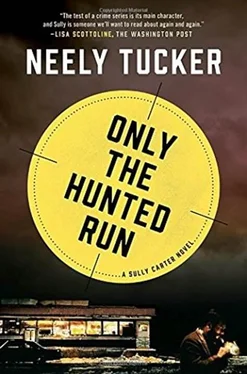

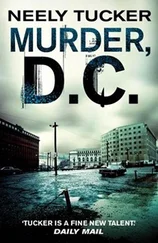




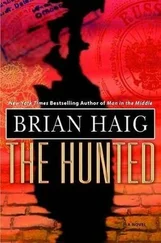
![Джон Макдональд - The Hunted [Short Story]](/books/433679/dzhon-makdonald-the-hunted-short-story-thumb.webp)
